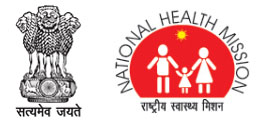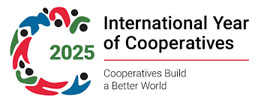National Quality Assurance Standards (NQAS)
National Quality Assurance Standards have been developed keeping in the specific requirements for public health facilities as well global best practices. NQAS are currently available for District Hospitals, CHCs, PHCs and Urban PHCs. Standards are primarily meant for providers to assess their own quality for improvement through pre defined standards and to bring up their facilities for certification. The National Quality Assurance Standards are broadly arranged under 8 "Areas of Concern"– Service Provision, Patient Rights, Inputs, Support Services, Clinical Care, Infection Control, Quality Management and Outcome. These standards are ISQUA accredited and meets global benchmarks in terms of comprehensiveness, objectivity, evidence and rigour of development.
Read More
Quality Certification
Quality Certification program for public health facilities has been launched with aim of recognizing the good preforming facilities as well improving credibility of public hospitals in community. Certification is provided against National Quality Assurance Standards (NQAS) on meeting pre-determined criteria. Certified facilities are also provided financial incentives as recognition of their good work.
Read More
Kayakalp Award Scheme
Kayakalp Award Scheme aims to improve Cleanliness, Hygiene and Waste Management practices in Public Health Facilities. Facilities go through internal, peer and external assessment process against a predetermined criteria. The best facilities are given cash award as well as felicitation at state and National level.
Read More
Swachh Swasth Sarvatra Initiative
Swachh Swasth Sarvatra is an innovative scheme where two successful schemes (Kayakalp & Swachh Bharat Abhiyan Rural) complements each other by enabling their counterpart to improve. The Kayakalp winner PHC in each district strives get their adjoining gram panchayat open defecation free. similarly the ODF declared block promotes their CHC to meet Kayakalp criteria.
Read More
Quality to Urban Health
Quality urban health focuses on assessment, improvement and certification of urban health facilities and urban outreach under National Quality Framework.
Read More
Laboratory Initiative For Excellence (LIFE)
Scheme for Laboratory Quality Improvement mandates for focused intervention for improving & standardization the quality of laboratory services through assessment, capacity building, and accreditation. For the first phase district hospital labs have been taken for intervention.
MeraAsapatal Patient Feedback System
This program utilises IT enabled tools to collect, analyse and improve the patient satisfaction in public health facilities.
Read More
Standard Treatment Guidelines
Standard Treatment Guidelines plays critical role in ensuring evidence based clinical practice and quality of care. Taskforce on Standard Treatment Guidelines has developed 12 evidence based clinical guidelines and implementation tools.
Read More
Training & Capacity Building
Training & capacity building is an important step to obtain, improve, retain skill & knowledge required to do job competently. To build capacity & create a sustainable Quality culture various training, workshops & courses are led by Quality Improvement division of NHSRC. It targets the health professionals viz. Hospital Superintendents, Quality Managers, Matrons & Nursing Superintendents, Health Administrators, Hospital Managers, Nodal officers for Quality Assurance in State health departments/ NHM, Members of Quality, Assurance Teams, Committees and Units, Quality Assessors, Health programme managers, etc.
Read More
LaQshya
It is estimated that approximately 46% maternal deaths, over 40% stillbirths and 40% newborn deaths take place on the day of the delivery itself. A transformational change in the processes related to delivery is required to achieve tangible results. Intervention is required during intrapartum and immediate postpartum period, so preventable death may be reduced in place where birth take place that is Labour room & Maternity OT. To ensure Quality of Care during intrapartum & immediate post-partum period in healthcare facility, MoHFW has launched Labour room Quality Improvement initiative named as LaQshya. LaQshya was launched with the objective of reduction in the maternal and newborn mortality & morbidity due to occurrence of complication during and immediately after delivery, to improve Quality of Care during the delivery and immediate post-partum care, stabilization of complications and ensure timely referrals, and enable an effective two-way follow-up system to enhance satisfaction of beneficiaries visiting the health facilities and provide Respectful Maternity Care (RMC) to all pregnant women attending the public health facility. It is programmed to benefit every pregnant woman and newborn delivering in public health institutions. Under the initiative, a multi-layered strategy has been framed such as concrete steps for infrastructure advancement, ensuring availability of essential equipment, providing adequate human resources, capacity building of health care workers and improving quality processes in the labour room. The NQAS (National Quality Assurance Standards) will monitor quality improvement in labour room and maternity OT. The LaQshya program is being implemented at all Medical College Hospitals, District Hospitals, First Referral Unit (FRU), and Community Health Center (CHCs) and will benefit every pregnant woman and new-born delivering in public health institutions.



